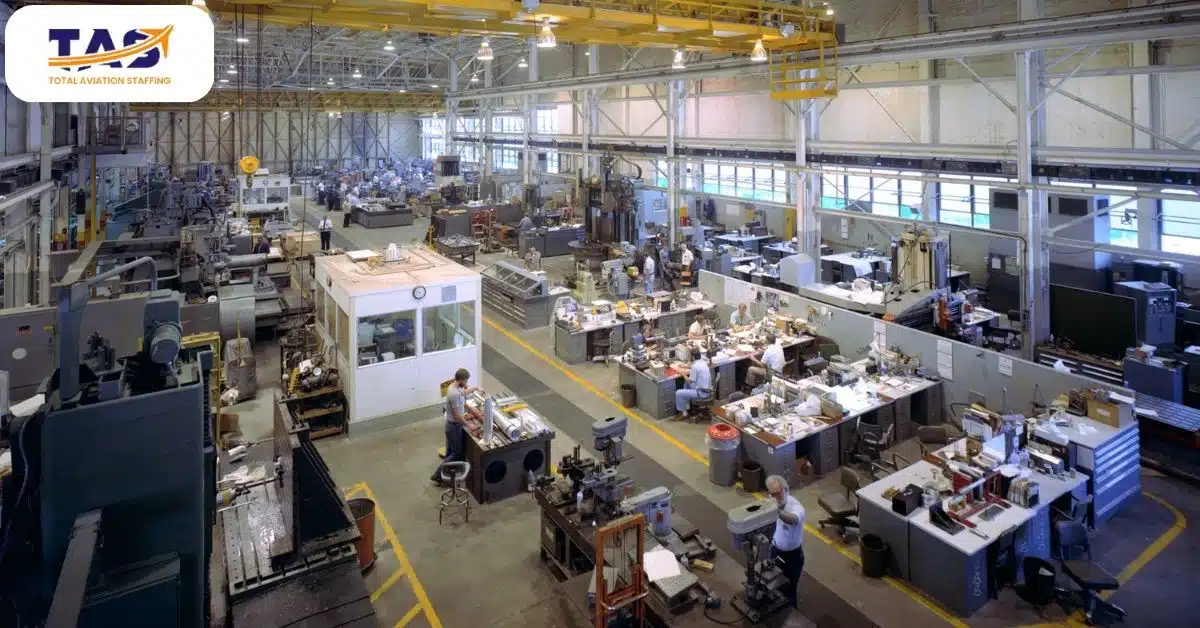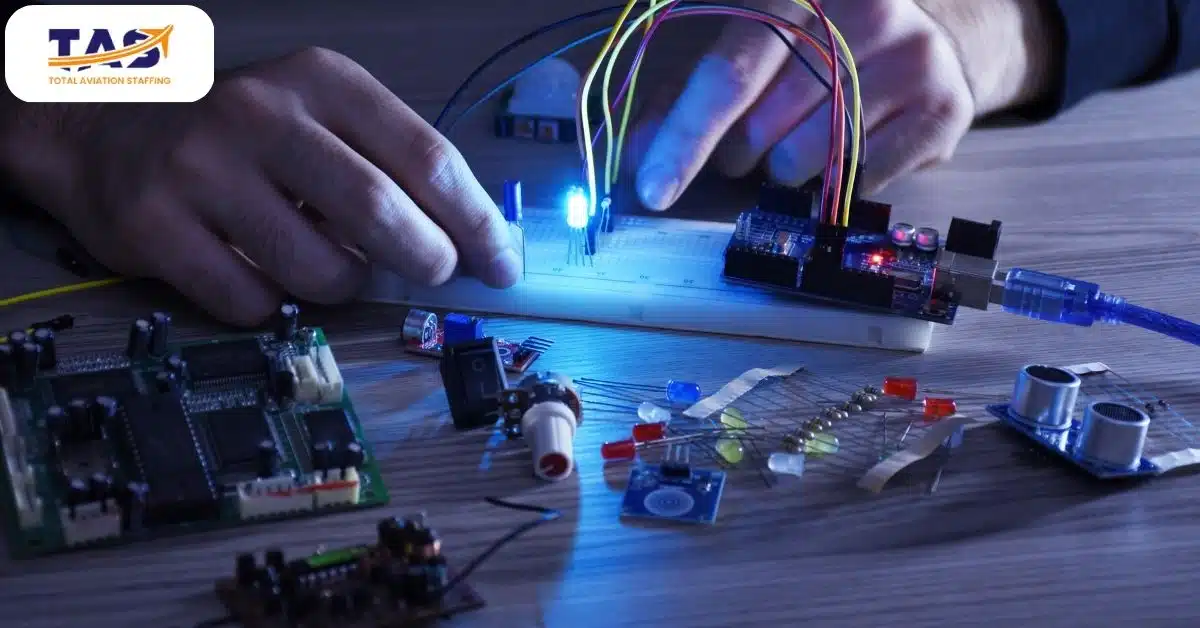Benefits of Working as an Electrical Engineer in the Aviation Industry

Are you interested in a career that promises a stimulating working environment and the opportunity to make an impact on the way we fly? If so, then consider becoming an electrical engineer in the aviation industry. Electrical engineers play a pivotal role in ensuring our planes are safe and efficient, designing and installing essential systems such as navigation, lighting, communications, and power systems. Working as an electrical engineer in the aviation industry is rewarding and offers numerous benefits, including a competitive salary, the chance to travel, and opportunities to work with some of the best technology in the world. In this blog post, we’ll explore some of these exciting advantages and how you can make your mark in the field of aviation engineering.
1. High Salary Potential
Working in the aviation industry as an electrical engineer offers an exciting career path with plenty of potential for earning a high salary. Electrical engineers in aviation develop advanced aviation systems and technology, with industries such as aerospace, aviation, and defense continually innovating and increasing in complexity.
With these advancements come tremendous opportunities for electrical engineers to contribute through the design and implementation of next-generation aviation electronics. As skilled professionals, they are offered strong pay packages by employers who realize that their work is mission-critical – without their expertise, advances in aviation technology would be impossible.
Thus, electrical engineers in aviation can expect to reap the rewards of a top salary that reflects the importance of their contributions to society’s progress.

2. Opportunity to Specialize in Unique Fields of Engineering
Working as an electrical engineer in the aviation industry can open up unique opportunities to specialize in aviation-specific engineering fields. From designing fuel systems to navigation instruments, aviation engineering is highly specialized and requires a deep knowledge of aircraft and aviation systems which electrical engineers are well-equipped to provide.
There are also opportunities for electrical engineers to receive aviation-specific certifications which will demonstrate their expertise to potential employers. Further, due to aviation’s significance in the global economy, electrical engineers who specialize in aviation have a competitive edge in the job market.
Working as an electrical engineer in the aviation them hence opens many doors and allows for specialization in highly sought-after specializations within the engineering field.

3. Exposure to Cutting-Edge Technology and Research
Working as an electrical engineer in the aviation industry offers a unique and exciting opportunity for professional growth. Not only can engineers gain invaluable experience from being exposed to the aviation industry, but they also have access to cutting-edge technology and research that is always advancing.
By using the latest technological advancements, engineers can continuously develop their skills and gain insight into modern trends in aviation engineering. As technology continues to evolve, electrical engineers working in aviation are sure to benefit from their ongoing exposure to advanced research and high-tech tools.

4. Variety of Job Settings and Industries
Aviation engineering offers a wide range of job opportunities in various industries. Electrical engineers can work in major airlines, aircraft maintenance companies, airports, defense departments, and other related organizations. The variety of settings allows engineers to choose the area that best suits their skill set and interests.
Moreover, electrical engineers have the chance to work with a range of stakeholders, including pilots, air traffic controllers, aircraft designers, mechanics, and many others. This wide range of contacts can provide an invaluable source of professional development opportunities.

5. Ability to Work on Highly Complex Systems
The complexity of aviation systems presents an opportunity for electrical engineers to work on highly complex projects. From designing communications systems and navigation instruments to developing automation controls and integrated electronics, the challenges faced by electrical engineers in the aviation industry are unique and often require creative solutions.
The level of complexity adds excitement and variety to the job, providing a great deal of satisfaction to those who enjoy working on intricate, challenging projects. With the right skills and experience, electrical engineers can make a real difference in the lives of people through their work in aviation.

6. Travel Opportunities for Those Willing to Work Remotely or Abroad
For electrical engineers who are willing to work remotely or travel abroad, there is an abundance of opportunities in the aviation industry. From consulting gigs abroad to remote jobs at major airlines and aerospace companies, those with a passion for aviation engineering can find positions that both fulfill their career goals and provide a sense of adventure.
Working in foreign countries and with international companies can open doors to professional growth and provide invaluable experience. Electrical engineers who are passionate about aviation need not limit themselves to domestic positions; the global nature of the industry offers an exciting array of possibilities.
A career in electrical engineering within the aviation industry provides many unique opportunities for those interested in pursuing this path. With access to cutting-edge technology, a variety of job settings and industries, the ability to work on highly complex systems, and travel opportunities for those willing to work remotely or abroad, electrical engineers in aviation are sure to have a rewarding career.

7. Work With a Team of Passionate Professionals on Exciting Projects
At the heart of aviation, engineering is a team of dedicated and passionate professionals working together on exciting projects. From designing new aircraft parts to testing the safety features of an aircraft, electrical engineers have the opportunity to work with a talented group of individuals who are all striving toward a common goal.
The chance to collaborate and learn from seasoned professionals in the field can be immensely rewarding, and the team atmosphere of aviation engineering provides ample opportunity to grow one’s skillset. With a career in electrical engineering within the aviation industry, professionals can look forward to working with like-minded colleagues on innovative projects that have a real impact on the industry.
An electrical engineering career within the aviation industry offers a wide variety of exciting career paths and opportunities. With access to cutting-edge technology, the ability to work on highly complex systems, travel opportunities, and the chance to collaborate with a team of passionate professionals on thrilling projects, electrical engineers in aviation can look forward to a fulfilling and rewarding career.

In Conclusion
The aviation industry presents a unique opportunity for electrical engineers who are passionate about their work. With access to cutting-edge technology, the ability to work on highly complex systems, travel opportunities, and the chance to collaborate with a team of dedicated professionals on thrilling projects, an electrical engineering career in aviation is sure to lead to a rewarding experience.
As the industry continues to evolve and progress, so too will the potential opportunities for electrical engineers in aviation – making it a field full of promise for those who are committed to pursuing their passion.
